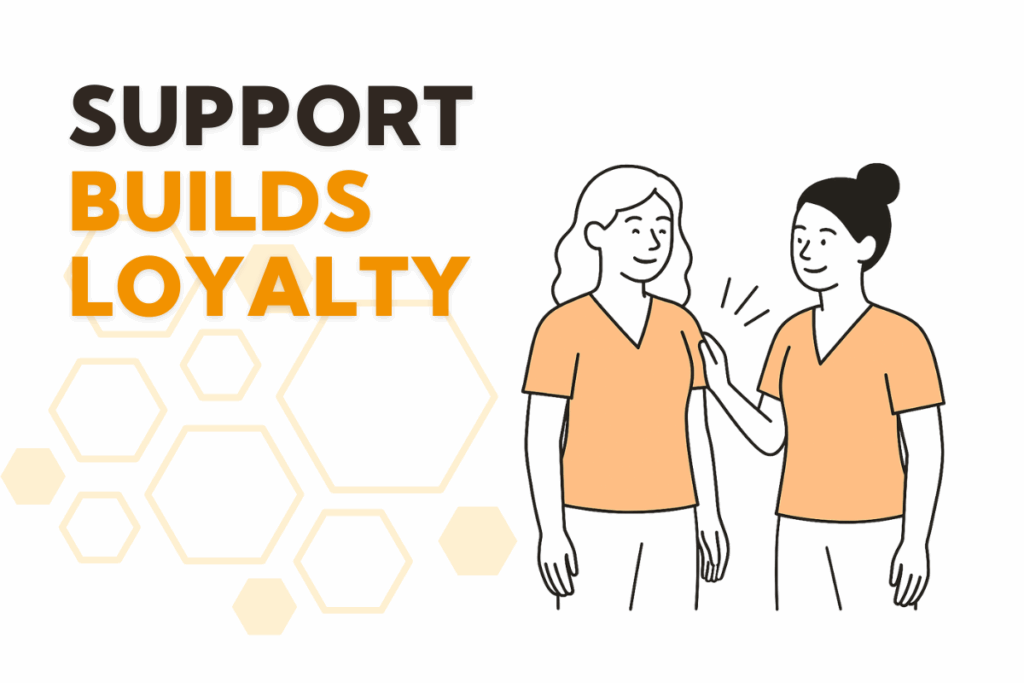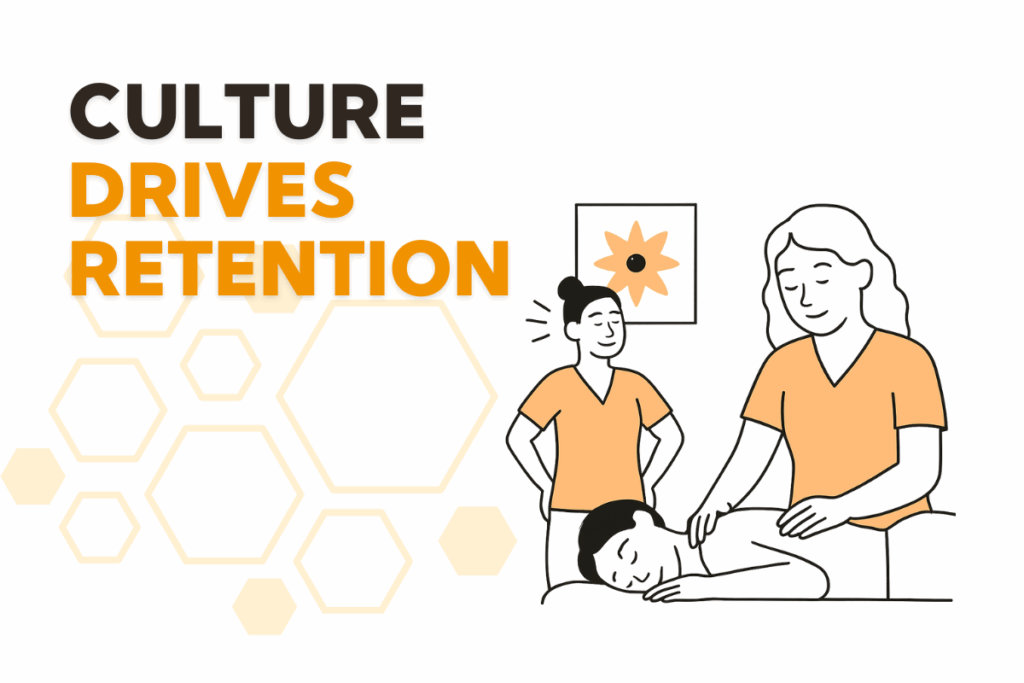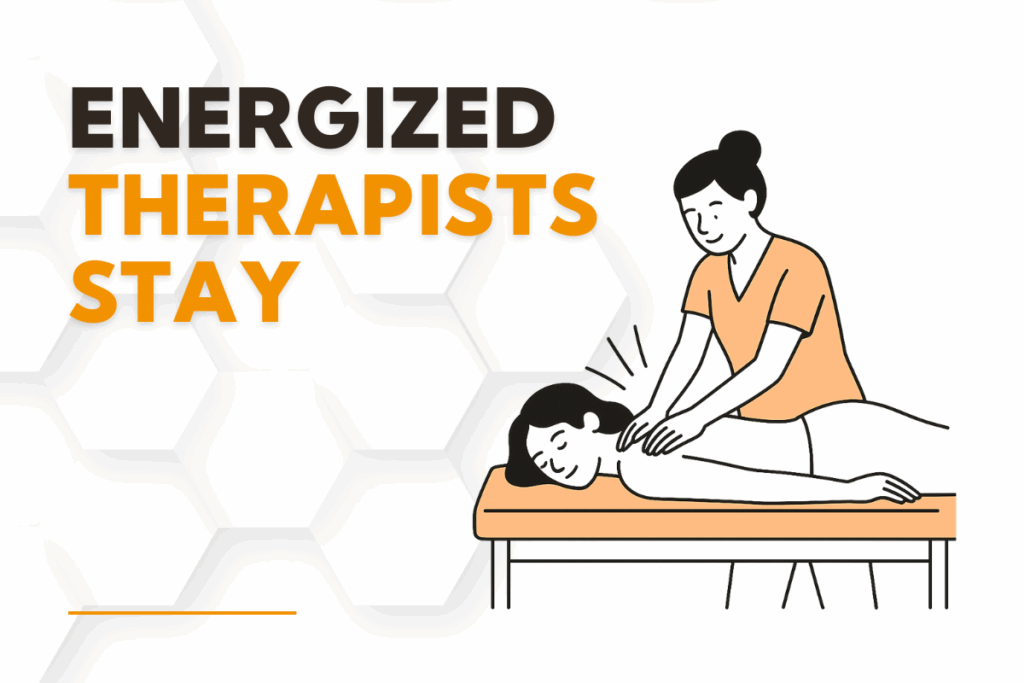Build a Team Culture That Supports, Inspires, and Retains Your Best Talent
Keeping massage therapists motivated is one of the most important responsibilities of any clinic owner. When your team feels overworked, underappreciated, or stagnant in their role, it doesn’t take long before the signs start to show. You may notice fatigue, disengagement, or a quiet decline in client care. More sick days, fewer smiles in the break room, and a rising sense that your team is just trying to get through the day are common indicators.
This article explores what really drives long-term engagement and how keeping massage therapists motivated can lead to better client outcomes, stronger retention, and a healthier clinic culture. These five practical strategies will help you build a workplace where your team feels valued, energized, and inspired to stay.
Understanding What Undermines Motivation
It’s Not Just About Pay
Therapist motivation often fades not because of compensation, but because of chronic exhaustion and lack of purpose. Daily repetition and emotional labor can wear down even the most passionate practitioners. Without a clear path forward or recognition for their efforts, therapists start to feel invisible.
Keeping massage therapists motivated means addressing both the emotional and logistical challenges they face every day. Pay matters, but what matters more is how supported they feel while doing the work.
The Real Business Impact
A disengaged therapist affects more than just team morale. It impacts client satisfaction, lowers rebooking rates, and increases turnover. By keeping massage therapists motivated, you are protecting the heart of your business. This includes consistency, quality care, and trusted relationships.
Create Smarter Schedules That Prevent Burnout
Balance Is Key to Motivation
Motivation fades quickly when therapists are booked without time to recover. Daily schedules packed with too many clients can lead to mental and physical burnout.
A more sustainable approach includes limiting sessions to four or five per day, adding breaks between treatments, and rotating service types. These adjustments go a long way toward keeping massage therapists motivated by respecting their limits.
Scheduling Tools That Help
With Hivemanager’s automated scheduling system, you can build customized calendars that prevent overbooking and promote recovery. You can set smart limits, insert breaks, and make adjustments as needed. This keeps therapist energy steady throughout the week while supporting clinic efficiency.

Use Consistent Communication to Build Trust
Check-Ins That Strengthen Motivation
Keeping massage therapists motivated means listening to them often. Regular one-on-one check-ins create a space to ask how they are doing, what challenges they face, and how you can support them.
These meetings should feel like conversations, not evaluations. When therapists feel heard, they become more engaged and more committed to your clinic’s success.
Build a Culture of Emotional Safety
Creating an environment where therapists can speak honestly without fear of criticism is essential. When people feel safe, they are more willing to share feedback, ask for help, and contribute to the clinic’s long-term vision. This sense of security supports lasting motivation.
Recognize Effort in Ways That Matter
The Power of Specific, Genuine Recognition
Therapists want to feel seen and valued. Keeping massage therapists motivated includes acknowledging their work in real and timely ways. Whether it is a great client outcome or a helping hand during a busy day, meaningful recognition makes a difference.
Say thank you with purpose. Highlight exactly what they did well and how it contributed to the team or the client experience.
Let the Team Recognize Each Other
Motivation grows in a community. Encourage therapists to recognize their peers through team shout-outs, informal notes, or a “wall of wins.” When therapists lift each other up, they feel more connected and supported in their daily work.
Offer Real Career Growth and Support
Development Fuels Retention
Therapists who feel like they are just filling time slots are more likely to leave. Keeping massage therapists motivated means giving them opportunities to grow within the clinic. This could mean becoming a mentor, developing skills in a new modality, or stepping into leadership roles.
Support their progress with CEU funding, in-house workshops, and shared learning opportunities. Use Hivemanager’s training tracker to follow their development and plan next steps together.
Make Progress Measurable and Personal
Work with each therapist to set short-term goals that feel achievable and meaningful. These can include improving rebooking rates, learning a new treatment approach, or supporting a teammate. Celebrate wins along the way. Small milestones build confidence and create momentum.
Build a Clinic Culture That Inspires Loyalty
Belonging Matters More Than Perks
Therapists want more than a paycheck. They want to be part of something that matters. When your clinic feels like a place where people care about each other, motivation becomes a natural byproduct.
Create rituals that build connection. This could be morning check-ins, team lunches, or monthly wellness sessions. Consistency is key.
Give Therapists a Voice in Shaping the Culture
Involve your team in decisions that affect their work. Whether it is planning events, improving workflows, or shaping policies, giving them a voice increases engagement. Keeping massage therapists motivated means trusting their input and following through when they share ideas.

Track Early Signals of Disengagement
Know the Warning Signs
When motivation starts to slip, the signs are often subtle. You might notice therapists becoming more withdrawn, skipping meetings, or turning down opportunities. Watch for these patterns and check in with empathy and curiosity.
Use Feedback to Guide Change
Quarterly surveys or feedback forms give your team space to be honest. Ask if they feel supported, valued, and challenged in their work. Keeping massage therapists motivated depends on showing them their feedback leads to action. Even small improvements make a big difference.
A Real-Life Turnaround That Started with Listening
An Edmonton-based massage clinic noticed a steady drop in energy among staff. Therapists were calling in sick more often, skipping staff events, and expressing doubts about staying on. The owner responded by reducing treatment caps, adding recovery breaks, and launching team-led initiatives like technique swaps and peer feedback sessions.
Within three months, not only did morale improve, but client satisfaction increased. Two therapists who had considered leaving decided to stay. The turning point was simple. Leadership listened, adjusted, and stayed consistent in their support.
Create the Environment That Brings Out Their Best
Keeping massage therapists motivated is not a quick fix. It is a daily commitment to listening, adjusting, and recognizing what matters. Motivation comes from meaningful work, fair schedules, real support, and a culture of belonging.
When you commit to these principles, your clinic becomes more than a workplace. It becomes a place where people want to stay, grow, and give their best. And that’s what truly drives success.
Frequently Asked Questions
Start by creating realistic schedules that respect their physical and emotional limits. Limit the number of sessions per day, add buffer time, and rotate service types. Combine this with regular feedback, recognition, and opportunities for growth to keep motivation high even in a busy setting.
Prevent burnout by focusing on balance and communication. Offer manageable workloads, encourage regular breaks, and check in often. Use tools like Hivemanager to manage scheduling and track early signs of fatigue so you can act before burnout sets in.
Emotional safety starts with leadership. Hold non-judgmental one-on-one check-ins, listen actively, and invite honest feedback. Reinforce the idea that therapists are heard, supported, and trusted—especially when they voice concerns or share new ideas.
Offer paths beyond just treatment hours. These can include mentoring newer staff, learning new modalities, leading workshops, or contributing to business development. Support their goals with CEU assistance, structured development plans, and performance recognition tied to professional growth.


